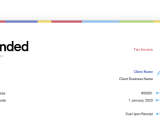
Your guide to sole trader superannuation
Regular contributions to a retirement fund are something employees take for granted, and freelancers often avoid acting upon. With cash flow being an ongoing issue, it may be difficult to justify giving up a reasonable chunk of money each month. Weigh up the pros and cons before making the decision.
Article contents
− +
In Australia, employers are obligated to provide a 9.5% super guarantee for every member of staff, and that number is set to rise to 10% in July 2021. These contributions are typically deposited into a bank account automatically, accruing compound interest over time.
When you work on your own, it can be easy to forget about super. You’re focused on running your business, and when money is tight, many freelancers simply don’t think they can put any of their funds into a super account.
This can cause major problems down the line. Failing to save money now means that you may have to work beyond the standard retiring age, or you might find it difficult to make ends meet once you do retire.
You can avoid this scenario by planning ahead. And the sooner you start planning, the more time you’ll have to grow your nest egg.
How to start growing your sole trader superannuation
We’re going to walk you through the steps necessary to start and maintain a super fund as a freelancer, even if you’re just starting out.
Before we get into that, remember that it’s always wise to consult a financial advisor or tax accountant when making decisions about your finances.
Once you’re ready, follow these steps:
1. Find the right super account
The first step toward starting a retirement fund as a freelancer is to open a superannuation bank account. You may already have one from previous jobs, and if you’re happy with it, it’s fine to keep that account.
However, if you don’t have a super account or want to find something better, there are online comparison tools like CanStar or SelectingSuper that will let you compare the interest rates and benefits of different super accounts side by side.
2. Set your goals for retirement
Retirement may feel like it’s a long ways away, but it’s worth taking some time to think about what you want your life to be like once you’ve finished working. Do you want to travel? Own property? Provide for your family? Knowing what you want to accomplish in your golden years will help you figure out how much you need to save now.
The Australian government has a retirement calculator that can make this process easier. Answer a few questions about yourself and your hopes for the future, and this tool will tell you how much you need to have saved up in order to live the retirement lifestyle you want.
Once you have this figure, you can do some simple maths to figure out how much you need to save monthly or annually to hit that goal.
3. Create a budget that includes saving for your super
Budgeting is notoriously hard for freelancers, because it’s common for income to fluctuate month to month, especially when you just start out. But having at least a basic framework for a monthly budget will allow you to have much more control over your finances, and give you a chance to find extra money that you can save for retirement.
Rounded’s accounting software helps freelancers and sole traders get a better perspective on their monthly income. Your dashboard shows you your income and expenses each month as they come in, and by automatically pulling your bank transactions, you can see exactly where your money is going.
CTA: Want to get a handle on your budget and finances? Try Rounded for free with a 14-day trial.
When making your budget, also consider any assets you have now (or expect to have in the future). For example, you may be planning to one day sell your business—this could make up a significant part of your retirement fund, which means you’d need to save less now. However, it’s still wise to save some money on your own in a super account, in case your plans change.
4. Start making personal superannuations contributions
Once you have your budget in place, see if there’s enough left over after you take out your necessary expenses to put into your super account. Even if you can’t make the full contributions you’d like, any amount you can save will help. Remember, Super accounts accrue interest—so the longer the money stays in your account, the more time it will have to grow on its own.
Now, all that’s left to do is move the excess money into your own super account—these deposits are known as personal superannuation contributions.
It’s wise to move the money you plan to save toward retirement into your super fund as soon as you have it. You may even opt to set up automatic super contributions through your bank. That way, you won’t end up accidentally spending the money you want to hold onto.
As you continue your freelance journey and your income grows, you’ll hopefully be able to set aside more money.
Superannuation and taxes
There are a few things freelancers should know about taxes when it comes to making personal superannuation contributions. (Read more about taxes for sole traders here.)
“As a freelancer, your super contributions are generally tax deductible, meaning any contributions you make can be subtracted from the amount you are expected to pay in annual taxes,” says Holly Shoebridge, Director at Oceans Accounting.
As an example, imagine you have taxable income of $45,000 in a year and put 10% ($4,500) into a super account. You may be able to deduct that amount from your taxable income, and potentially further reduce your overall tax bill.
Keep in mind, concessional contributions (which are contributions you make into your super before tax) are capped at $25,000 annually. Those super contributions are taxed at 15% within the super fund, which may be much lower than your marginal tax rate.
While this might seem like a great perk, you don’t necessarily always want to claim a tax deduction. Lower-income earners may qualify for the super co-contribution.
With this program, the government will contribute a certain amount of money (up to $500) for low-income earners who make super contributions. You can learn more about who is eligible for this program here.
Depending on your situation, you can decide whether the tax deductions or the co-contribution program is better for you. The government has a super co-contribution calculator that may make this decision easier.
Superannuation for sole traders is complex stuff, but hopefully, you now have a better understanding of why it’s so important. Remember that tax accountants and financial advisors can help you outline a retirement plan and budget. If you start building up your super now, you’ll thank yourself when you’re ready to retire.
Join newsletter
ABOUT ROUNDED
Invoicing and accounting software for sole traders. Get paid faster and relax at tax time.
























